|
Opinions You can’t manage what you don’t measure 08 AUGUST 2018 1:00 PM Proper measurement of event-technology revenue and expenses will lead to more efficient operations, more memorable guest experiences and more profitable bottom lines. By JeffLoether Event technology and audiovisual services often are not considered part of a hospitality organization’s core business; yet that’s what people come for. These services are frequently outsourced to third-party providers, but they can also be provided using in-house resources and staff. Unfortunately, when they are kept in-house, they often are neglected because no one is responsible for the service, and no one is monitoring activities. AV and event technologies are the forgotten child. Hospitality companies are laser-focused on managing revenues and costs for core businesses. Property managers are trained to operate as efficiently as possible, and sales people are focused on—and compensated for—booking business that drives profits. Room rates are constantly adjusted based on supply and demand to achieve the highest yield, event groups are booked to maximize revenues, and food-and-beverage and labor costs are routinely scrutinized. So where do AV services fit in? When properly managed, AV can be the second-most profitable department in a hotel behind rooms. By improperly grouping AV revenues and expenses with other event-related items, such as flowers, transportation and linens, venues are losing the ability to properly manage this critical component. Not only should these expenses be separate from other “miscellaneous” items, but they should also be tracked in separate categories to better understand where the revenues and costs are coming from. Event technology revenues come from multiple sources: equipment rental, staffing and sales items, and from subcontracted equipment and labor from outside vendors. In some venues, the event technology/AV department may be responsible for providing additional services, such as internet and rigging. All these items should be tracked in separate revenue categories. This is necessary to understand profit since venue-owned equipment and services can be provided at a much higher margin than equipment and services that must be cross-rented from a third party. Services such as rigging are also more expensive to provide due to higher labor costs and will generate a lower profit margin. When a venue really understands revenue sources, it enables the venue to maximize revenue opportunities. Like revenue, expenses must also be tracked by category. Internal costs, such as labor, supplies, consumables and miscellaneous expenses as well as external costs for labor, equipment and outsourced services are important to understand. By analyzing these costs, venues are better-positioned to make educated decisions on equipment purchases, staffing and pricing of the equipment and services offered to customers. You cannot manage what you do not measure. Because measuring as described above is often not performed, it is very difficult for venues to properly manage their event technology services. Since revenue and costs are not closely tracked, the service is not highly valued. It then becomes a loss leader or compensation for service failures in other departments. Since no one directly oversees the AV services, there is a lack of accountability for giving away the AV services to avoid discounting something that is monitored, such as banquet food-and-beverage revenues. Since technology revenue is typically not included in sales incentive packages, venue salespeople often offer discounted event technology services so they can charge higher rooms and food-and-beverage rates, which are measured as part of their incentive compensation package. And audits of transactions show that most of the discounts come out of the hotels’ portion of the revenue share. This is what we call the “free money syndrome.” Hospitality organizations already have the mechanism to measure event technology revenues and costs in their profit-and-loss statement. The first step is to operate event technology as a separate department so that revenue and expenses are not mixed with other services. The next step is to utilize the same profit-and-loss reporting structure used in other departments to track the proper categories as addressed above. This ensures that revenues and expenses are reviewed and evaluated on a regular basis and allows the property to react when opportunities and issues arise. Additional systems can be put into place that identify trends, both positive and negative in opportunities, comps, capture, rebates and discounts. To properly manage event technology services, revenue and costs must be correctly measured. This is the only way to make educated decisions on refurbishments for internal systems, new equipment purchases, repairs versus replacements, outsourced service agreements, staffing and efficient scheduling. Hospitality organizations often have the correct process in place in other departments, but do not apply them in event technology due to a lack of understanding of the business model. Following the guidelines above will allow venues to realize an enhanced profit for the service, as well as deliver an improved event experience. Jeff Loether is president of ELECTRO-MEDIA DESIGN Ltd., an audiovisual systems design and acoustical consultation group focusing on audio, video, control, and related presentation, |
|
entertainment, and communications technologies. Loether is the IACC 2018 Mel Hosansky Award recipient for Distinguished Service. |
|
The opinions expressed in this column do not necessarily reflect the opinions of Hotel News Now or its parent company, STR and its affiliated companies. Columnists published on this site are given the freedom to express views that may be controversial, but our goal is to provoke thought and constructive discussion within our reader community. Please feel free to comment or contact an editor Copyright © 2008-2018 STR, Inc. Page 1 / 2 with any questions or concerns. |
|
understanding of the business model. Following the guidelines above will allow venues to realize an enhanced profit for the service, as well as deliver an improved event experience. Jeff Loether is president of ELECTRO-MEDIA DESIGN Ltd., an audiovisual systems design and acoustical consultation group focusing on audio, video, control, and related presentation, |
|
entertainment, and communications technologies. Loether is the IACC 2018 Mel Hosansky Award recipient for Distinguished Service. The opinions expressed in this column do not necessarily reflect the opinions of Hotel News Now or its parent company, STR and its affiliated companies. Columnists published on this site are given the freedom to express views that may be controversial, but our goal is to provoke thought and constructive discussion within our reader community. Please feel free to comment or contact an editor with any questions or concerns. |
|
Copyright © 2008-2018 STR, Inc. Page 2 / 2 |

